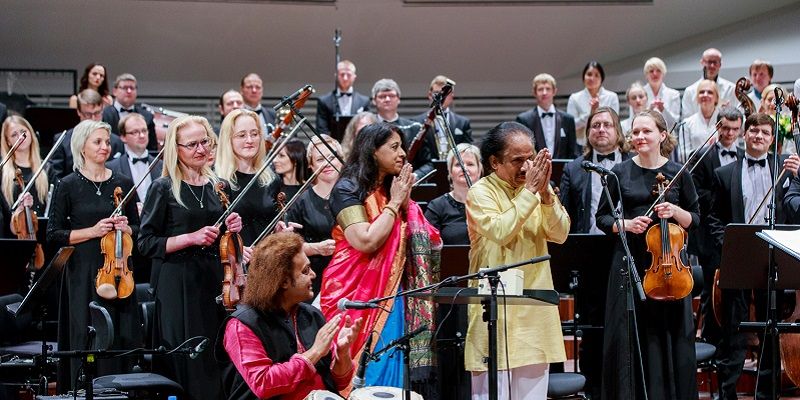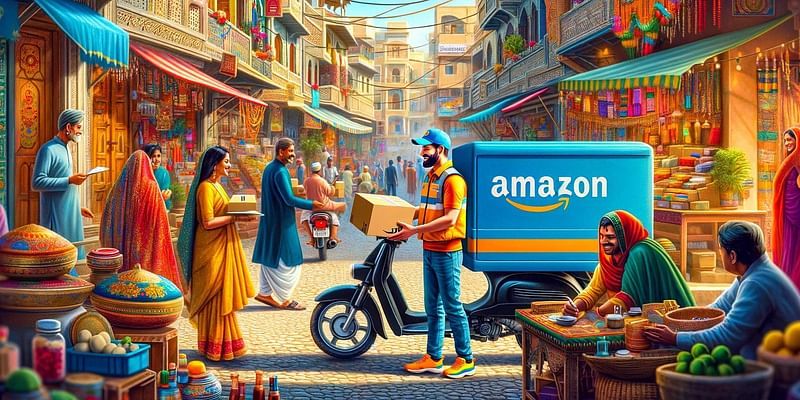On Song: Kavita Krishnamurthy on jingles, playback and rediscovering her love for music
Padma Shri awardee Kavita Krishnamurthy talks about her musical journey, from starting small in Mumbai to discovering fame and love.
A life-size statue of Ganesha greets me at the entrance to the home of Kavita Krishnamurthy and L Subramaniam, an old bungalow in Bengaluru’s Dollar’s Colony Malleshwaram.
Sitting on a diwan, I can’t wait to speak to Kavita Krishnamurthy, whose old number Hawa Hawai recently added a new touch to Vidya Balan starrer Tumhari Sulu. Kavita, for the last few years, hasn’t been active on the Bollywood music scene; she’s been busy working with her husband and being a part of several musical tours. Explaining her current phase in her life Kavita says,
“I got a Padma Shri; I feel that doing just Bollywood I would not have gotten it. I did sing but there were others singing in Bollywood too. I sang for festivals. I remember when I was singing in the Rashtrapati Bhavan lawns and Abdul Kalam heard me. He heard me sing Ai Giri Nandini and he really enjoyed the version of this shloka with an orchestra. The very next year, I got a Padma Shri. I felt he was instrumental in that.”

Different era
I can’t stop looking at the majestic Ganesha; I am told that his idol is worshipped before anything else is done in this household. Kavita joins us in five minutes. I expected her to be resplendent in a Kanchivaram saree, but she’s wearing a simple black salwar-kameez.
Speaking about the difference between singing then and now, Kavita says: “That was an era I loved and miss now for a number of reasons. It kept you on your toes as there was no pitch correction and you sang on big acoustic mics. If the needle moved to red, it meant you were over-blasting; they would adjust the microphone after which you would have to maintain a level.”
Kavita sang a lot of different kinds of songs, but Mr India’s Hawa Hawai set her apart in 1987. Laxmikant had called Kavita over to sing a song that Asha Bhonsle would sing for Sridevi.
“Javed Akhtar was there; he gave me some funny words in the beginning. I learnt the song and went home. My mother thought I was mad because I was saying these really funny words,” Kavita laughs.
A hidden mistake
The next day, when Kavita went to the studio, it was buzzing with musicians.
“While we were there, the lyrics started changing. Javed sahab walked in and added to the ending of the song. I was not comfortable with the idea of being funny. I was only trained in classical music and all this was new to me. But the song demanded it,” she says.
Eight months later she got a call from the music composer’s office; he told Kavita that her song would be retained as it really suited Sridevi.
Kavita was ecstatic but said she had to record the song again as she had made a mistake.
“He asked me what mistake and I told him instead of Jaanu I had said Jeenu. He said that as it is there were so many strange words that it would feel like I did it on purpose. Also, he felt that I could not sing it the same way again and so he would keep it the same way. After that song, it was like I had arrived,” Kavita adds.
Her love for Carnatic and Rabindra Sangeet
With a ready smile, Kavita takes me through her journey.
“It all started before I was born,” she says. Kavita’s musical journey is beautifully interlinked with the Bengali Rabindra Sangeet and the typical Tamil Brahmin household’s choice of Carnatic music.
Reminiscing about her early days, Kavita says, “My mother’s inseparable friend was a Bhattacharya; we were Krishnamurthys. Both our families lived together in Delhi, and we had a government service background. My father was offered a bigger house, but my mother refused to move unless my aunt could. So, they let go of the Government house and moved to a home where both families could live.”

Since Kavita’s mother and aunt were both passionate about music, they ensure that Kavita learned music. When Kavita was seven, she won her first gold medal.
“We learnt music very seriously. Though it was a hobby and despite going to school, my mother would make sure that we got up in the morning and practised,” Kavita recalls.
But it was her aunt’s dream that Kavita become a playback singer. And as soon as Kavita finished school, her aunt took her to Mumbai.
“My father asked why I was doing film music and not classical music. She said she saw my future here. So, you can say that it was my aunt's dream; I was an obedient child who followed her. I worked hard but the vision was all hers.”
Starting big
Kavita was 16 years old when she and her aunt found a place to stay in Mumbai. They realised that the home they were living in was that of legendary actor and director Guru Dutt’s younger brother. Kavita enrolled at St. Xavier’s College, started singing jingles and starred in college functions.
At one such event, singer Hemant Kumar was the chief guest. He heard Kavita sing and asked her to sing with him. She sang with him at a number of shows and was introduced to Manna De, who called her to Gujarat for a concert.
“This was the first time I sang with him on stage. I would to do so for the next 18 years, all around the world,” Kavita adds.
Be it Hemant Kumar or Manna De, singing with them was a huge learning experience.
“ It was one of the best training grounds for me. I also sang my first jingle with Geeta Dutt for a product called Amul Spray in Tamil. This led to so many opportunities,” she remembers.
Kavita’s college days were packed - classes, music lessons, two to three concerts a week, and jingles. Her aunt was with her all through.
“It was very exciting and one thing led to another.”
Music in her blood
Kavita soon realised that music had become an integral part of her life and that she wanted to stay in Mumbai. Her father, in Switzerland then, asked her if she was sure. But there was no looking back for her.
However, Kavita’s first tryst with playback singing happened in 1971. Hemant Kumar had called her to his studio in Parel. When she reached, he taught her two lines of a Tagore song.
“The musicians were all ready to play. I was quietly sitting there when the door opened and Lata Mangeshkar walked in. In those times, there was a huge hall where the musicians would sit and there would be two mics. I would have to stand within three feet of Lataji and sing with her. I literally died. I was so engrossed in her singing that I forgot my lines. I eventually finished and that was my first film release - Shriman Pritviraj, a Bengali film,” Kavita says.
The era of dubbing
By 1976 and 1977, Kavita began backing up and recording songs that would eventually be sung by Lata and Asha. Her second release for the movie Kadambari wasn’t an original song; her songs would eventually be dubbed by Lata Mangeshkar
“In 1978, I was singing at least three to four songs a week for Laxmikant-Pyarelal. I sang for a film called Maang Bharo Sajna. I sang all the songs, which were later sung by Lataji, but one of my songs was retained and filmed on Rekha.”
Kavita soon began to get regular work in the industry with small music directors.
“Pancham Da started calling me but all his films would flop. He was going through a really bad phase. Films like Hum Hai Lajawaab, Karishma, they all flopped. My songs flopped. He told me that one day he would get me a good song for a good film,” Kavita says.
True to his word, when 1942: A Love Story happened, Pancham called Kavita.
Subhash Ghai had also started his new production and wanted to work with new signers. In Karma, she had the opportunity to sing with Kishore Kumar.
“I was nervous because I was singing with Kishore Kumar. It was also a difficult song for me because it was a style of music I was not very comfortable with. But Laxmiji worked hard and Kishore Da was very encouraging. He was very naughty though. In those days, it took long to rehearse songs. In the time it was taking musicians to get ready, Kishore Da started narrating his life story. He made it so entertaining I was in splits. When they announced that it was time for a final rehearsal, I had been laughing for almost two hours. I felt like I had lost control of my voice. And he said something like ‘Ab gaana gao’,” she says.
While Lata and Asha were still going strong, music was now being composed of other singers as well.
A new lull
However, starting 1994, Kavita experienced a lull in her career. Every song was Kumar Sanu and Nadeem-Shravan.
“However, I was always called to sing classical and semi-classical songs. I was singing different kinds of songs. That was when AR Rahman called me to sing for the background score of Bombay. He asked me to fly in to sing and I sang Kuchi Kuchi Rakkamma. I finished the song and Rahman asked me to sing another song. That is how I recorded Tu Hi Re,” she says.
Finding someone who would make music take a backseat
In 1999, she got a call that Dr L Subramaniam was working for a film called Hey Ram. Kavita was a bit nervous because this would be classical fusion music. She sang a few lines for a duet with Hariharan. The film project did not take off, but in the next four months, Subramaniam had a project that needed a Hindi-speaking singer.
Her called Kavita to Bangalore and she sang for an album, Global Fusion.
“In those three to four months, we worked together and got attracted to each other. I met his children during the recording and when I got back, it was the first time I felt depressed. There was something about these children which just got to me. It had been four years since their mother had died. For the first time in my life, I felt like I had met someone I could marry. I felt that if I was not with him and the children, my singing would fall flat,” she says.
Kavita had finally met someone for whom her singing would take second place.
“It did not matter to him if I did not sing professionally anymore,” she says. Kavita knew she was cutting herself out of Mumbai, knowing fully well what a harsh industry it was.
But by then the industry had started shifting. New directors and new needs started coming in. Slowly the work was becoming and Subramaniam told Kavita that there had to be some music that she could do without a script and a director.
It set Kavita on a different musical journey.
“I saw the life of a great classical musician. I saw that at 11 pm, whether he was troubled or in a peaceful state of mind, he would pick up his violin and practise. This was after an entire day spent with the children, taking care of their studies and playing with them. All his life he has practised late at night because he was from a poor family. I would see his hard work; it was devotion,” she says.
This was when she realised the value music could have for her personally.
“I started enjoying music a lot more,” she says. As we speak, Kavita is set to head out on a musical tour with her husband L Subramaniam.











